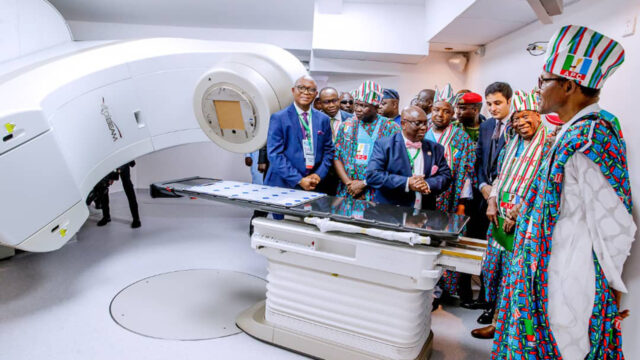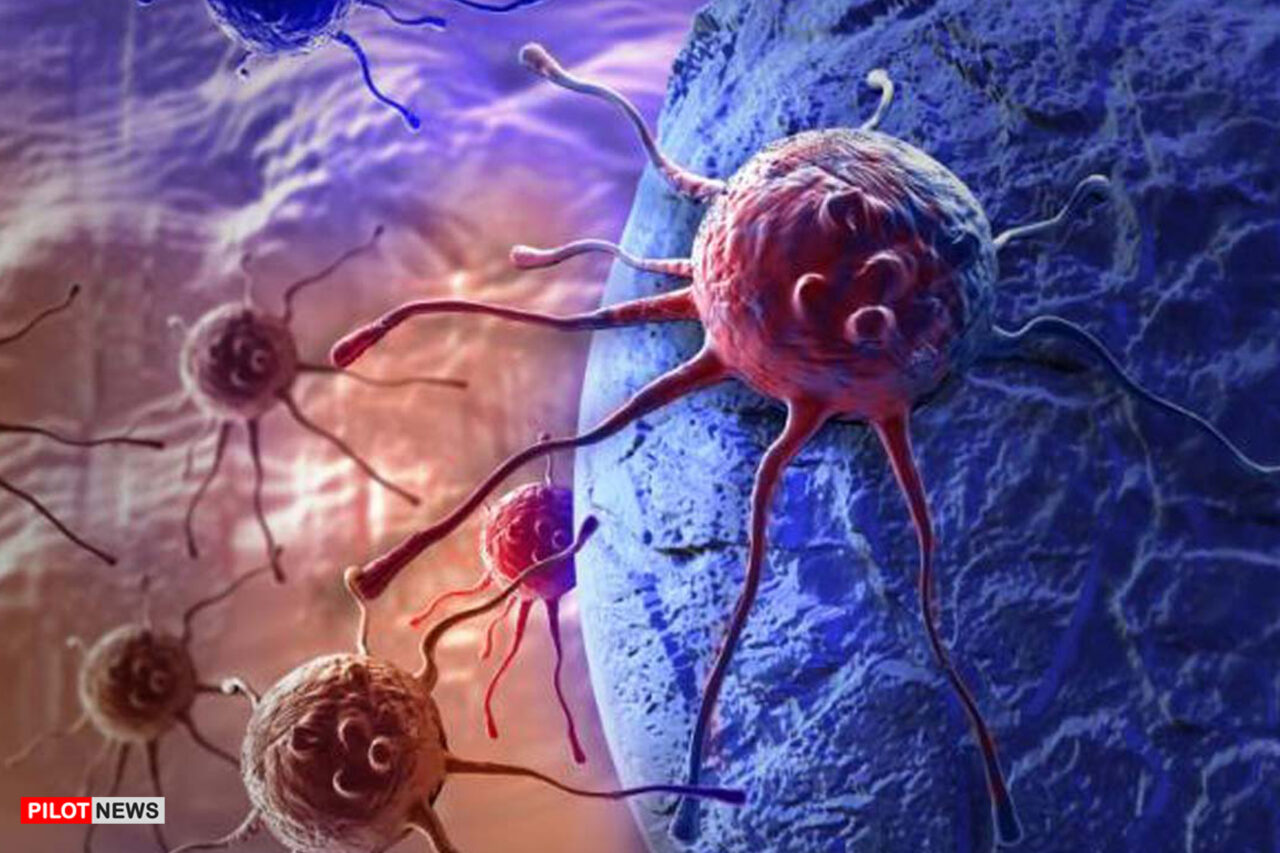A News Analysis by Cecilia Ologunagba, News Agency of Nigeria (NAN)
_____
Cancer is a leading cause of death worldwide, including Nigeria, according to the World Health Organisation (WHO).
The global health agency estimates that over eight million people die of cancer annually and it is acclaimed the second leading cause of death globally.
The disease is responsible for 72,000 deaths in Nigeria every year, with an annual estimated 102,000 new cases, according to the Nigeria National Cancer Prevention and Control Plan (2018-2022).

The top five cancer burdens in Nigeria are prostate, liver, non-hodgkin’s lymphoma, colorectal and pancreatic for male and breast, cervical, liver, colorectal and non-hodgkin’s lymphoma for the female.
Of these, breast and cervical cancers are responsible for approximately 50.3 per cent of all cancers in Nigeria.
To reduce the burden of cancer in the country, health experts say deliberate steps must be taken to improve care, control and management.
The experts emphasised the need for updated cancer registers (data), upgrading of existing facilities and training of personnel, as well as increased investment to reduce the burden of the disease.
In addition, the experts are of the opinion that more oncology centres should be established in the country to boost prevention, diagnosis and treatment of cancer.
Dr. Abidemi Ononisi, a Consultant in Anatomic Pathology, said Nigeria was one of the leading countries in cancer registration in Sub Saharan Africa.
According to him, a cancer registry is an information system designed for the collection, storage, and management of data on persons with cancer.
He said “registries play a critical role in cancer surveillance, which tells us where we are in the efforts to reduce the cancer burden.
“Surveillance data may also serve as a foundation for cancer research and used to plan and evaluate cancer prevention and control interventions.’’
The consultant said Nigeria’s four registries had projected the image of the country internationally, listing them as Abuja Cancer Registry at National Hospital, Abuja (NHA), Calabar Cancer Registry, Ekiti Cancer Registry and Ibadan Cancer Registry.
“The registries project Nigeria’s image internationally when it comes to assessment of cancer burden.
“They are recognised by the World Health Organisation (WHO) and that means that data from those registries are sent to the world body through the Africa Cancer Registry Network for the projection of global cancer statistics.”
However, Dr. Emmuella Nwachukwu, a Consultant Clinical/Radiation Oncologist at NHA, said that the seven oncology centres located in the six geopolitical zones of the country and the Federal Capital Territory (FCT) were not adequate to care for cancer patients nationwide.
According to her, the centres are located at University of Benin Teaching Hospital, Benin; Lagos University Teaching Hospital, Lagos and University College Hospital (UCH) Ibadan.
Others are located at the University of Nigeria Teaching Hospital, Enugu; Usmanu Danfodiyo University Teaching Hospital, Sokoto; Ahmadu Bello University Teaching Hospital, Zaria; and NHA.
The consultant, who noted that the seven centres were inadequate for an estimated population of about 200 million, added that “there is the need to establish oncology centres in all the states of the federation to reduce the workload on the machines in the seven centres we presently have.
“It will also reduce the breakdown of machines being experienced at the centres.
“Every state has a teaching hospital; they should work toward getting oncologists and a radiotherapy centre to help improve cancer care in Nigeria.”
Nwachukwu, who said there was a need for improvement in handling of cases, noted that the country was performing lower than expected in oncology practice.
She said “we also have few radiotherapy machines in the country. We only have six of such machines, used in the management of cancer.
“The six machines are highly inadequate for our population.
“We also need more doctors in that specialty because there are presently less than 100 clinical oncologists in the country.
“Doctors for some oncology subspecialties are not even available in the country; we need more surgical oncologists and gynaecology oncologists,’’ she said.
Meanwhile, the Minister of Health, Dr. Osagie Ehanire, said the Federal Government had plans to upgrade the seven oncology centres to manage invasive cancer and cancer-related illnesses.
He said “to this end, there is an ongoing installation process of newly acquired Brachytherapy machines (one per centre) and CT simulators are being supplied for these institutions to enable them to commence treatment after installations.
“The bunkers to house these equipment are at various levels of completion. To ensure uninterrupted services to patients, LUTH in Lagos is on Public-Private Partnership (PPP) arrangement with National Sovereign Investment Authority,’’ he said.
The minister said that the second phase of Medical Physicist Residency training in South Africa was underway to enhance the skills and increase the number of personnel in radiotherapy.
In addition, he said, there were plans to train healthcare workers at the Primary Health Care centres on early diagnosis and referral of common cancers.
According to him, government is partnering with the American Cancer Society (ACS) and Clinton Health Access Initiative (CHAI) to make 16 chemotherapy medications available at 65 per cent cheaper than current market cost.
The minister added that “there is an ongoing engagement with other organisations to bring additional medicines, including biologics and immunotherapy at less the present cost in the market.
“This is to ensure regular and unbroken supply of these drugs to patients.’’
In addition, the minister said, the ministry had developed a National Hospice and Palliative Care Policy to ameliorate the sufferings of cancer patients.
“This is to provide the best quality of life for cancer patients, survivors and their families.’’
According to him, the ministry has also developed a chemosafe policy, which has to do with safe administration of medicine to cancer patients.
He said the government had laid a solid foundation upon which it would build to take Nigeria to that enviable level – the hub of cancer management in sub-Saharan Africa.
Late diagnosis and presentation of cancer cases to wrong places were among the challenges of cancer control and management in the country, according to experts.
Dr Okpako Okpikpi, the Coordinator, National Cancer Control Programme, Federal Ministry of Health, however, cautioned against presenting cancer cases to the wrong places such as spiritual and traditional herbal homes.
Okpikpi said spiritual and medical homes could work together but some people would decide to just go to spiritual houses or traditional houses, thereby presenting the case late to the hospital.
According to him, the Federal Ministry of Health has achieved a lot through an annual International Cancer Day and Week by raising awareness on cancer and what can be done to prevent it.
He said “we have achieved a lot; we do regular free screenings in partnership with the Women Affairs Ministry; we screen rural women for breast and cervical cancers.’’
Cancer analysts had also emphasised the need for women to examine their breasts often and to go for cervical cancer screening, while men above 40 years should undergo regular Prostate-Specific Antigen Test.
They said early detection would help to reduce the burden of the most common cancers in the country and would complement the efforts of the Federal Government and other stakeholders.
In addition, they urged Nigerians to go for regular check-up to help in the early diagnosis of the disease, noting that “cancer is not a death sentence if detected early and promptly presented to hospital for treatment.”
- Anambra 2025 Governorship Election Might Be an Open Contest - April 24, 2024
- Anambra Assembly Passes Bill To Prohibit Secret Cults - April 24, 2024
- 2024 Aguata NBA Law Week: AG, Prof. Ifemeje Touts Landmarks and Expectations - April 19, 2024


